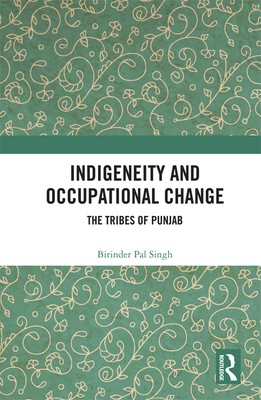
- We will send in 10–14 business days.
- Author: Birinder Pal Singh
- Publisher: Routledge Chapman & Hall
- ISBN-10: 0367335867
- ISBN-13: 9780367335861
- Format: 15.5 x 23.6 x 1.8 cm, hardcover
- Language: English
- SAVE -10% with code: EXTRA
Reviews
Description
This book is about the presence of the absent-- the tribes of Punjab, India, many of them still nomadic, constituting the poorest of the poor in the state. Drawing on exhaustive fieldwork and ethnographic accounts of more than 750 respondents, it explores the occupational change across generations to prove their presence in the state before the Criminal Tribes Act was implemented in 1871. The archival reports reveal the atrocities unleashed by the colonial government on these people. The volume shows how the post-colonial government too has proved no different; it has done little to bring them into the mainstream society by not exploiting their traditional expertise or equipping them with modern skills.
This book will be of great interest to scholars of sociology, social anthropology, social history, public policy, development studies, tribal communities and South Asian studies.
EXTRA 10 % discount with code: EXTRA
The promotion ends in 19d.13:03:19
The discount code is valid when purchasing from 10 €. Discounts do not stack.
- Author: Birinder Pal Singh
- Publisher: Routledge Chapman & Hall
- ISBN-10: 0367335867
- ISBN-13: 9780367335861
- Format: 15.5 x 23.6 x 1.8 cm, hardcover
- Language: English English
This book is about the presence of the absent-- the tribes of Punjab, India, many of them still nomadic, constituting the poorest of the poor in the state. Drawing on exhaustive fieldwork and ethnographic accounts of more than 750 respondents, it explores the occupational change across generations to prove their presence in the state before the Criminal Tribes Act was implemented in 1871. The archival reports reveal the atrocities unleashed by the colonial government on these people. The volume shows how the post-colonial government too has proved no different; it has done little to bring them into the mainstream society by not exploiting their traditional expertise or equipping them with modern skills.
This book will be of great interest to scholars of sociology, social anthropology, social history, public policy, development studies, tribal communities and South Asian studies.


Reviews